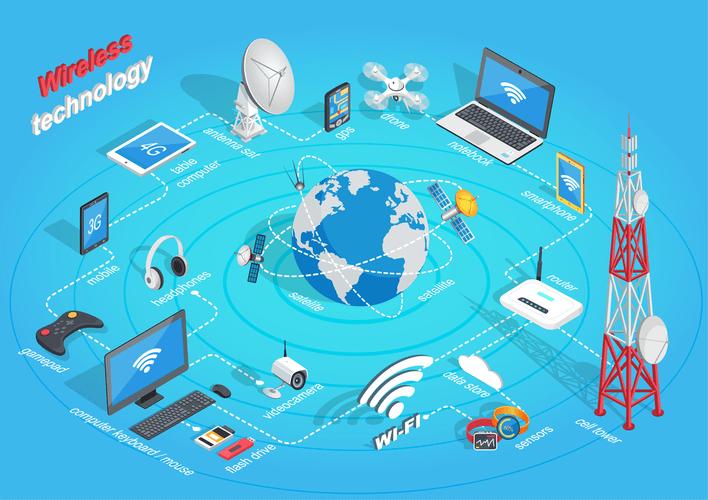Legacy Software Modernization 101: Practical Information
These narratives stand as proof of the substantial potential and advantages that modernization can deliver to any business, irrespective of its measurement or sector. Over time, legacy methods are inclined to slow down, draining assets without delivering enhanced performance. Modern techniques, including modernized legacy methods, are designed for optimal performance without resource depletion. Consequently, incorporating an software modernization plan is a normal part of an enterprise’s broader digital transformation strategy. APIs share data between applications, making it potential to combine instruments collectively and for information to flow from one platform to another.
You can automate the guide writing of code, repurpose the present code, and optimize the business processes. Also, diagnosing issues may take from a few hours to a number of days as very few builders in your group know the old legacy systems in-depth. The techniques you choose to spend cash on to become the very basis of your business. With the best tools and systems in place, you can accomplish business aims and reach your company’s full potential. But, now these systems have gotten outdated, putting a legacy burden on your business.

Change adoption could be difficult, especially for groups using the same processes and techniques for years. But giving them the proper training, instruments, processes, and assist may help them higher understand the method to use your new modernized purposes and get probably the most out of the change. From the engineering perspective, legacy application modernization is a technical redesign that’s needed to effectively keep a software system in addition to improve and scale it to fulfill evolving business needs. Improving the general team productivity is among the crucial advantages of modernizing legacy methods. You can transfer the workforce to cloud and leverage cloud computing to enhance the effectivity of day-to-day activities.
This Atlanta-based company offers baggage dealing with techniques to the airline trade. Quantum Aviation Solutions modernized its Java-based legacy system to a custom web-based app to realize greater mobility of staff, scalability and cross-platform integrations. But while it increases effectivity and velocity, it might not be relevant in each state of affairs. Some legacy systems are so complicated that automated modernization won’t be possible with out first disentangling the prevailing system’s logic and functionality. Be sure to research the feasibility of this method in your particular context earlier than using it.
It Project Audit: Is Your Project Attaining Its Intended Goals?
This will guarantee thorough documentation for future system growth, making the software program easier to know, extend, and keep. This leaves legacy systems exposed to new threats and non-compliant with current safety requirements. As legacy software ages, its vulnerabilities turn out to be more obvious to hackers, growing the risk of cyberattacks. The transition to more modular designs like microservices helps businesses align higher with present applied sciences and developments.
- ’ the answer can be – the method of taking a legacy system and updating it to incorporate trendy platform infrastructure, architecture, and/or options.
- While preserving the steadiness between architects’ and executives’ factors of view, keep in mind to concentrate on the users of software systems, as in any case, the efficiency of any instruments carried out heavily relies on them.
- Most organizations aren’t building or modernizing functions constantly – it’s simply not their core focus.
- Opt for a modernization strategy that gives the flexibility to accommodate future adjustments.
- Regular audits and assessments be certain that the modernized methods stay aligned with evolving enterprise needs.
As a rule, modernization is driven by specific points that derive from the legacy application’s expertise, architecture, or functionality. Organizational silos usually make enterprise decision-makers disconnected from operations. Consequently, they may have restricted availability of the lower-level processes and methods in which they need to be modernized.
Continuous Enchancment And Proofing
Here, legacy application modernization helps guide your company again into the competitive lane with contemporary, effective IT solutions. Organizations usually retain and use legacy techniques important to their day by day operations and enterprise necessities. Modernizing legacy purposes assist get rid of the problems that arise from utilizing outdated tools, sending a ripple effect throughout your entire digital workplace. Teams become extra efficient, employees and prospects have better experiences, and costs and risks are decreased. Legacy utility modernization would possibly involve including new solutions to enhance legacy techniques, retiring legacy applications, and even migrating to a completely new way of doing things.

Organizations that rely on legacy options must due to this fact put cash into extra seasoned and often costlier senior staff, as youthful and mid-level workers are less prone to work together with antiquated programming languages and methods. Legacy information must also be migrated and reorganized, as it is sometimes scattered over a quantity of databases. Besides, older methods normally depend on specific hardware settings, which increases operating bills in comparison with modern, cloud-based options. Should your company still rely on outdated techniques, you run the hazard of inefficiencies, financial loss, and safety flaws. A main knowledge center firm, Equinix, sought to speed up the development of recent features.
Utility Modernization Strategy: Assessment And Planning
Organizations can select a gradual strategy to modernization, first opting to encapsulate whereas enterprise a more complete (and time-consuming) refactor, rearchitect, rebuild, or replace technique for the long term. This mentioned, re-platforming, refactoring, and architecting are the most typical approaches to legacy utility modernization – the proper combination of ease and return. In the ever-changing landscape of expertise and business, organizations must be prepared for perpetual transformation. Legacy techniques, typically monolithic in design, hinder adaptability to new features and capabilities.

DevOps — a term for the collaboration between development and operations — improves operational efficiency and helps companies keep on prime of fixing customer needs. DevOps uses analytics, monitoring, and metrics to make strategic modernization choices. To facilitate and speed up change, as well as present ongoing efficiency assist for your workers, think about investing in a digital adoption platform (DAP). First, enterprises should evaluate their present legacy systems and perceive why they need IT modernization. Unfortunately, new risk strategies can’t be stopped just by finding old patterns. Especially when legacy apps largely run on centralized, monolithic architecture, a successful attack can utterly shut operations down.
Develop Your Net Modernization Methods
APIs make cloud-based systems possible and ensure beforehand disconnected microservices can function as one. Modernization usually involves updating safety measures to fulfill current trade standards and compliance regulations. Legacy techniques might lack the sturdy safety features essential to guard in opposition to trendy cyber threats. By upgrading methods, implementing encryption, entry controls, and compliance-driven protocols, organizations strengthen their protection towards cyberattacks. This not solely safeguards sensitive knowledge but additionally builds trust with customers and companions, demonstrating a dedication to data safety and privacy.
Legacy systems in life and P&C are built on outdated architectures with excessive maintenance prices, inherent inflexibility, redundant features, lack of connectivity, and low effectivity. A legacy software or system is software that has become outdated however continues to be in use. These methods usually rely on older technologies and should not integrate nicely with present software program solutions. Migrating to legacy application modernization is a big step, and it’s definitely challenging for everybody involved.

About 44% of CIOs believe that complicated legacy technologies pose a big barrier to the company’s digital transformation. Key outcomes may include improved buyer satisfaction, elevated employee effectivity, and better use of data insights. These concerns are valid because app modernization failure rates are high, at around 74%. It delivers quick time-to-value whereas verifying that your observability technique can keep up with the dynamic complexity of current and future environments. Learn the means to speed up your app modernization, enhance developer productivity, and enhance operational effectivity and standardization. Score early modernization wins by figuring out the apps at the core of your small business and modernizing their key dependencies.
4 min learn – Exploring the renewable energy sources out there to corporations and the steps they can take to accelerate their own clear vitality transitions. Organizations are topic to perpetual change by shoppers, a cutthroat market, an unstable financial system, and the opportunities presented by growing know-how. To make sure the staff features optimally, you’ll have the ability to contain team members at numerous levels to foster a way of ownership and reduce resistance to vary. Legacy systems usually have outdated features and limited integration capabilities.
Legacy system modernization is the process of upgrading or remodeling outdated, usually monolithic and inefficient legacy techniques into extra up to date, environment friendly and adaptable options. This strategy helps guide you through the process of adopting microservices, encapsulating legacy software and introducing modernization options https://www.globalcloudteam.com/legacy-application-modernization-a-digital-transformation-process/. The goal is to create a model new system that enhances enterprise processes and improves buyer experience. As companies strive for heightened efficiency, scalability, and adaptability, the imperative to modernize these legacy functions turns into increasingly pronounced.

It boosts employee confidence and morale, preparing them for change and increasing job satisfaction. Once your small business case is accredited, catalog all your IT assets — together with applications, systems, enterprise processes, and databases. Investing in new tech is often costly, with each update requiring a significant outlay. The problem lies in selecting which updates are worth your hard-earned cash.To ensure a enough life cycle for your funding earlier than the next replace arrives, prioritize capabilities that promise to provide an ROI. Maintain clear priorities to navigate the complexities and changes during the transition. It’s also essential to strategy modernization incrementally (rather than all at once) to make the process more manageable and cost-effective.
Instana goes beyond traditional APM options by democratizing observability so anyone across DevOps, SRE, platform engineering, ITOps and improvement can get the information they need with the context they want. Though planned obsolescence is a term that applies to product life cycles, the speedy pace of technology change, market dynamics, and organizational change inevitably result in legacy methods. Modern tech staff depend on assets like libraries, frameworks, and tools out there in online communities, that are scarce for legacy systems. Over 80% of those expenses are dedicated to operations and maintenance, primarily for legacy systems. If your corporation continues to be anchored to legacy software, you may risk inefficiency, revenue loss, and safety vulnerabilities. A key first step in direction of technical development is modernizing old packages, although it is not with out challenges.
By the time research firm IDC found that greater than 50% of enterprises had a companywide modernization technique in late 2021, annual digital transformation spending had already exceeded $1.5 trillion. Often, in phrases of the technical realization of the modernization project, enterprises use a mix of several approaches listed above. This allows them to tailor the strategy to the precise business needs and architecture peculiarities and achieve higher results.
The right modernization method is about selecting excellent flexibility to adapt to alter. An encapsulated application could be linked to different microservices, however it nonetheless faces all the same limitations as its present code base. However, refactored or rearchitected software meets an organization’s future wants better. If the legacy application is not meeting the business wants of today’s aggressive landscape – if it is an impediment or just not a contributor to success – it ought to be modernized.



